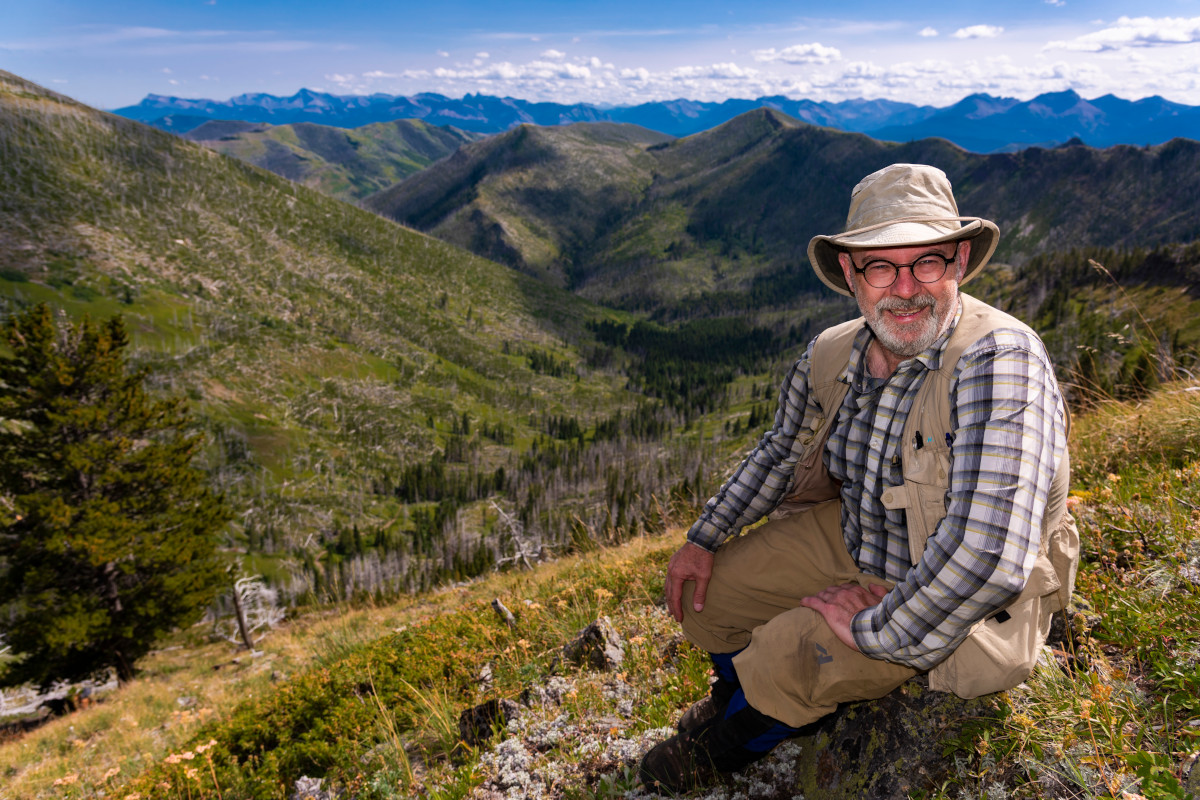Message to alumni and friends from the Chair of the Department of Earth and Atmospheric Sciences
Stephen Johnston - 17 March 2021

Stephen Johnston, professor and chair in the Department of Earth and Atmospheric Sciences, pictured during a field school session before the COVID-19 pandemic. Photo: John Ulan
In the summer of 2015, my wife Sheila and I were driving north up the Island Highway from Victoria to Qualicum Beach to see my parents. It was a beautiful Vancouver Island day—sun shining, the smell of kelp mingled with cedar, hemlock and Douglas fir. We were quiet, pensive. The drive north was to tell my elderly parents that we were moving to Edmonton so that I could take up the position of chair of the Department of Earth and Atmospheric Sciences (EAS). Victoria had been our home for over 16 years, and the School of Earth & Oceanic Sciences at the University of Victoria my employer. Was going back to Edmonton, where I had received my MSc and PhD, where we had purchased our first home, the right thing to do?
We were listening to CBC Radio, Michael Enright I think. He was hosting a show about urban planning and the role that cities had to play in the development of our country. One of the participants was Don Iveson, mayor of Edmonton. Don’s participation caught our interest, but regardless of the Edmonton link, he was eloquent and compelling—a wonderful speaker. Don Iveson’s insights regarding the role of cities in addressing equity, diversity and inclusion; on the contribution of urban planning in combating climate change; of the broader social significance of affordable housing and transit for all, were at once inspiring and challenging. As was his message about the specific role of Edmonton in being Canada’s gateway to the north. By the time we got to Qualicum Beach, our concerns about moving to Edmonton had been replaced by a desire to be part of mayor Iveson’s vision of Edmonton as an icon for urban development and the role to be played by municipalities in addressing so many societal and Earth system issues.
My parents turned out to be the first, but they certainly were not the last to ask ‘Are you seriously going to leave Victoria for Edmonton? More than five years on, all I can say is how personally grateful I am for having been provided with the opportunity to join EAS and how lucky we are to live in and contribute to this wonderful city. Natural resources built this city— first coal, then oil, and more recently oil sands. And our department has, since John Andrew Allan was hired in 1912 as the university’s first lecturer in geology, played a huge role in that development. The challenge of providing the energy necessary to power our city and our country remains, and we continue to be a world leader in the geology of energy deposits. But there are other challenges facing us now. We only need to look at the forest fires that devastated Fort MacMurray during the spring of 2016; the floods that ripped through Canmore and Calgary in 2013; the drastic and ongoing disappearance of the glaciers that grace our Rocky Mountains and which are the source of much of the water upon which we depend; and the COVID-19 pandemic that closed down the University of Alberta on Friday, March 13, 2020.
Despite the diversity of societal and environmental issues, our department continues to play an outsized role in addressing these challenges. Our research and teaching programs span urban development to watershed management; climate change to diamond exploration; the social impact of forest fires, particularly on our indigenous communities, to biogeochemical and mineralogical carbon sequestration; from exploration for the minerals necessary to facilitate the ongoing energy transition, to developing affordable housing solutions; from assessing municipal transit plans to quantifying the role of permafrost in Earth’s warming climate.
Edmonton is, as per Don Iveson’s vision, an agent of change. And EAS is central to that vision. I am proud to have been able to play a small part in facilitating the teaching and research of such a progressive and confident group of staff, students and faculty, all of whom are intent on addressing and overcoming such significant societal, environmental and geological challenges. Coming back to Edmonton has proved to be a wonderful, challenging and highly rewarding move for Sheila and me. Our sincerest thanks to all of you.
- Stephen Johnston, Chair, Department of Earth and Atmospheric Sciences